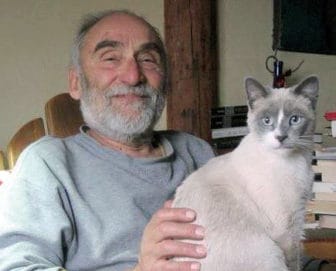COMMENTARY: It seems at times that the world is what it must be like for a fly climbing a window pane. You can see it all out there but you can’t get to it. The window is transparent, but is what you are seeing the truth? How could you know? How could you be sure?

Courtesy photo
Emanuele Corso
Reality is itself a construct that you accept or not at your own peril. We suffer an opaque political system working overtime, as it does, to corrupt itself at every turn while trying to convince us it isn’t. The sensational, hour-by-hour revelations about or for each candidate become a yawn for some people or raw meat thrown to a madding crowd for others.
The final political question eventually devolves to how many times we must hold our collective noses and vote for a lesser evil before the political system crumbles into the darkness of chaos?
Required reading for one of the classes I taught at the University of Wisconsin-Madison, Radical School Reform, was Saul Alinsky’s “Rules For Radicals.” It was published the same year I started teaching, 1972. I still keep the book on my desk and pick it up from time-to-time — scanning through for a random jewel, perhaps a random memory.
My favorite passage has always been the concluding paragraph. “The great American dream that reached out to the stars has been lost to the stripes. We have forgotten where we came from, we don’t know where we are, and we fear where we may be going. … When Americans can no longer see the stars, the times are tragic. We must believe that it is darkness before the dawn of a beautiful new world we will see when we believe it.”
It is indeed about believing. We live in a complex world believing in, among other things, truth, equality, other people to fear, and something called “fairness,” and a world in which people are asked to believe in an economic system that favors a few at the disadvantage of many.
As with religious dogma, our economic belief system, capitalism, may not be challenged in spite of clear evidence that it is destroying social contracts and the environment globally. If you doubt this you haven’t been paying attention to the exodus of American business to other countries, places where there are little or no health and safety regulations, and pay scales that are a fraction of those in the U.S. In many of those offshore countries workers earn less in a day than what Americans doing the same work earn in an hour.
The irony, of course, is that those goods now being made abroad are brought to the U.S. for Americans to “consume.” At the same time that the general public is being impoverished, infrastructure is crumbling across the country to pay for the perpetual and profitable war machine.
It is reasonable, I believe, to ask what our values are as a nation when people are without medical care, and children without sufficient daily meals or a proper education. Are our voices not heard at the seats of power or are our voices simply inconsequential?
Capitalism, a zero-sum enterprise that ultimately has only one winner, has become both a belief system and an economic system. In the words of S.D. King in When The Money Runs Out, “In reality, the financial system prices beliefs — and beliefs — not ultimate truth.” The economic pie is just one size, and as someone else’s slice gets bigger someone else’s inevitably becomes smaller.
In the end, regardless of Calvin Coolidge’s belief that “The business of the American people is business,” what really makes for a healthy, equitable society is truth — and the truth is about groceries, not overseas bank accounts. It’s supermarket shoppers trying to put a meal on the table every day who are the real economy and who make the economy function; that’s what keeps a civil society alive and healthy.
Emanuele Corso’s essays on politics, education, and the social contract have been published at NMPolitics.net, Light of New Mexico, Grassroots Press, World News Trust, Nation of Change, New Mexico Mercury and his own — siteseven.net. He taught Schools and Society at the University of Wisconsin-Madison where he took his PhD. His bachelor’s was in mathematics. He is a veteran of the U.S. Air Force’s Strategic Air Command, where he served as a combat crew officer during the Cuban Missile Crisis. He has been a member of the Carpenters and Joiners labor union, Local 314. He is presently working on a book: Belief Systems and the Social Contract. He can be reached at ecorso@earthlink.net.
